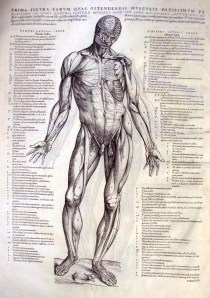P.J. Sullivan
The controversy over health care in America misses an important point, that the human body is a self-healing organism. Americans think that doctors and medicines are the only options for the sick. They are not. There will always be a role for doctors, but the majority of illnesses are preventable and curable without them, simply by removing causes. Medicines rarely remove causes–they suppress symptoms, thus converting acute illnesses into chronic illnesses.
In his book, “Rubies in the Sand,” Herbert M. Shelton asks, how did prehistoric peoples fare before doctors and medicines became available? How did they care for their sick? He concludes that they did very well, until their “fatal breach with nature.” Because nature heals. All it asks is non-interference in its processes. Every cell in the body is endowed with an instinct for self-preservation. Harness that instinct and remarkable things can happen.
People run to doctors at the first sign of a symptom; doctors then suppress that symptom with powerful drugs. Few people—and few doctors—understand the meaning of symptoms, that symptoms are part of the healing process. To suppress symptoms is to suppress healing. (Homeopathic medicines “work” by being too weak to suppress the body’s efforts to heal itself.)
The current obesity crisis is an obvious example. Do doctors have the power to cure obesity? Is gastric bypass surgery the answer? Too many desperate people believe it is. Have they never heard of fasting? Fasting is easier than dieting for anyone with pounds to spare, and is guaranteed to take off pounds, in all the right places, without doctors or medicines, without side effects. Fasting is a perfectly natural process that does not require a hospital setting. It costs nothing and can be done anywhere. Why then are so many obese people unwilling to try it? Instead, they flee to medical gurus, seeking drastic cures. Why is major surgery preferable to fasting? Why do so few Americans realize how easy it is to fast? The difference between fasting and starving? Why are so many so eager to surrender their autonomies to doctors?
Doctors admit that they can’t cure the common cold, but millions of cold sufferers recover anyway. Doctors can’t cure Ebola, but patients with healthy immune systems have survived it.
Doctors claim to be making progress against chronic diseases, but a careful study of the statistics calls that claim into question. All the money Americans have thrown at “health care” has not made us healthy. If vaccines help to save lives, improvements in public sanitation could save more, without the side effects down the road. Sound nutrition could save countless lives, of both starving and obese people. Environmental integrity and equality of economic opportunity could save many more lives.
Medicines are not the answer; indeed, they all have side effects, some of which can be deadly. It is claimed that thousands of people die from lack of health insurance in America, but an estimated 225,000 Americans die each year from medical malpractice and from illnesses attributable to hospital stays.
The cost of “health care” is soaring. People and governments could save billions of dollars by adopting and promoting drugless natural healing, as espoused by Herbert M. Shelton, instead of medical symptom suppression. But that would require confronting the all-powerful medical and pharmaceutical lobbies. As John H. Tobe said, “Disease is the biggest money maker in our economy.”
“Medicine is not a science,” said Dr. Emmet Densmore, “it is empiricism founded on a network of blunders.” In the United States, medicine is also a for-profit business answerable to the insurance industry.
As for me, I am covered by Medicare, but hardly ever have occasion to use it. After decades of medical blundering, even abuse, I now rely on nature for my health care. It gives me more control over my life. Why not give nature a chance? Don’t know how? Read Shelton.
P.J. Sullivan is the author of three books of historical nonfiction, including “Mostly Rapscallions,” a book of satire about the jokers in history’s deck.




Reblogged this on Vox Populi.
While I respect this author’s opinion, and I can acknowledge some areas of agreement, I think it offers a simplistic, even naïve view of the powers of the human body to heal itself given the real, not the ideal, environment in which our bodies live and breathe. Natural healing is rooted in a healthy environment, in “nature” as it should be, perhaps one day can be, again. Human tampering and destruction of natural resources must be stopped The battle against corporate interests has been joined, but it will require years of activism and then, hopefully, environmentally healing measures. Perhaps we should call it a return to nature. In that scenario, much of Shelton’s world view would be viable. Not all. It would be Got-like to believe we as human beings can totally fix that which is broken when illness and suffering exist from diseases which cannot even be diagnosed as yet, let alone treated successfully. Yes, there are many factors of our health that we can and must be responsible for. But Pandora’s box of misery or the eaten apple, whatever prompted human beings to move beyond an innocent relationship with the natural world, cannot be undone. We can lament that and still insist it will be easy for our bodies to heal themselves. Or we can do what we can what we have, where we are, and move forward to fix a health care system that is itself riddled with political toxins.